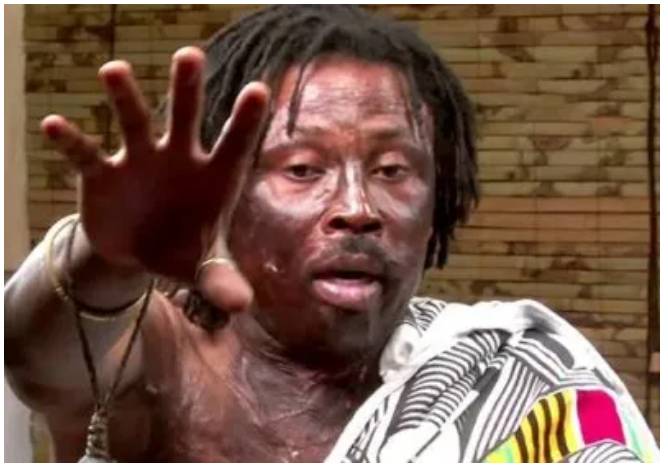Renowned traditionalist and fetish priest, Nana Kwaku Bonsam, has stirred public discourse with a bold declaration that the New Patriotic Party (NPP) has already lost the upcoming election in the spiritual realm. This claim, steeped in spiritual symbolism and cultural context, has sparked widespread debate among political analysts and the Ghanaian public.
The Spiritual Verdict
According to Nana Kwaku Bonsam, the river gods—guardians of nature in traditional African spirituality—are angered by the NPP’s governance, particularly their failure to address the scourge of illegal mining, locally known as galamsey. These activities have led to severe environmental degradation, including the destruction of river habitats and the mass killing of aquatic life.
“The gods of the rivers are furious because their homes have been destroyed,†Nana Kwaku Bonsam stated. He further likened the presidential seat to an egg, symbolizing fragility and trust, which has now fallen from the NPP’s grasp and shattered. This, he explained, represents the spiritual loss of the party.
The Role of Galamsey
Illegal mining has long been a contentious issue in Ghana, with devastating impacts on the environment and local communities. Rivers once pristine and teeming with life are now polluted and barren. For many Ghanaians, these rivers are not just natural resources but sacred entities believed to house powerful spiritual forces. The destruction caused by galamsey has not only undermined livelihoods but also invoked the wrath of these spiritual entities, according to traditionalists like Nana Kwaku Bonsam.
A Prophetic Win for the NDC
Nana Kwaku Bonsam confidently predicts a landslide victory for the National Democratic Congress (NDC). “The spiritual forces have already made their decision,†he declared. The fetish priest claims to have spent sleepless nights inquiring spiritually about the election’s outcome, leading him to this conclusion.
This prediction is not just a claim but a reflection of deep-rooted beliefs in the interplay between the spiritual and physical worlds. In Ghana, spirituality often intersects with politics, influencing public opinion and political campaigns.
Public Reactions
The pronouncement has elicited mixed reactions. Supporters of the NDC view it as a validation of their party’s imminent victory, while NPP loyalists dismiss it as mere superstition. Political commentators have noted that such declarations, while symbolic, hold significant sway in a society where spiritual beliefs remain integral to daily life.
The Bigger Picture
Beyond the spiritual assertions, Nana Kwaku Bonsam’s claims spotlight critical issues such as environmental conservation, governance, and accountability. The galamsey menace continues to challenge Ghana’s leadership, demanding sustainable solutions to protect natural resources and the communities that depend on them.
Engaging the Reader
What are your thoughts on the intersection of spirituality and politics? Do you believe spiritual forces can influence the outcome of elections, or should such matters remain within the realm of policy and governance? Share your views in the comments below.
This article not only explores a significant cultural and political development but also invites readers to reflect on the broader implications of governance, environmental stewardship, and the enduring influence of spirituality in modern society.


